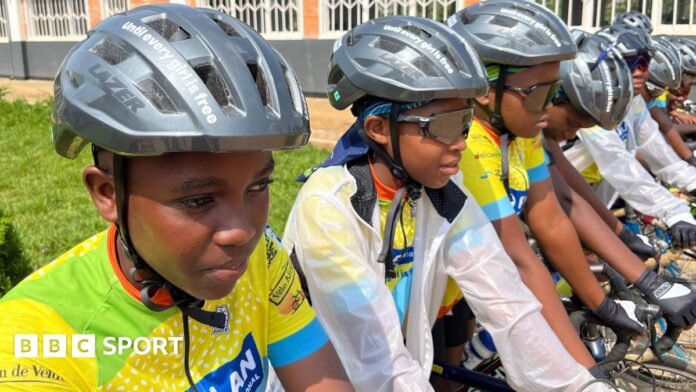Maniragena’s journey into elite cycling began when she joined Bikes for Future, an all-female team backed by humanitarian group Plan International and Learn Work Develop (LWD), a non-profit organisation implementing the scheme
The initiative seeks to challenge gender stereotypes and empower young Rwandan women through sport.
“What makes Olivia unique is her determination,” says her coach Niyonsaba Elidad.
“She knows what she wants. Every time we train, she gives it her all.”
Women’s cycling in Rwanda is still in its infancy and often marginalised in a sport long viewed as the domain of men.
“In the past, if a girl was seen riding a bike, people would ridicule her. They would say, ‘You are not a boy, why are you cycling?'” explains Mbabazi Fillette, programs and partnership manager at LWD.
“If they saw a young girl getting a bike and riding it, it would be an abomination.
“We’re proving that girls can not only ride, but also compete at the highest level.”
At the Bugesera Cycling Centre, Maniragena has gained more than racing skills. She has also mastered bike mechanics.
“I can dismantle and reassemble a bike in five minutes,” she says. “It’s something I truly value. It brought back the hope I had lost in my life.”
While other members of the 30-strong team have specialised in things like welding, tailoring and communications, Maniragena’s trade has become her financial lifeline.
“What keeps me going is knowing I can earn an income.
“On a good day in the bike shop, I make about $7. When I race, I can earn even more.”
But financial barriers continue to pose a significant challenge.
A decent racing bike costs between 60,000 and 150,000 Rwandan francs (approximately $42 to $104) – an unattainable amount for many from low-income backgrounds.
Despite these obstacles, the passion for cycling among Rwanda’s youth continues to grow.




